Subtotal
$0.00
or
Giving your dog cuddles and – WHOA! – it hits you. Super stinky breath. Worse than our “morning breath.” What has this dog been eating?! If your dog has a penchant for the disgusting like mine, you don't want to know. You just want it to smell good.
You can help your furry friend, though, and your own nose. Brush those choppers. Daily or at least a couple times a week. You can mix together your own dog toothpaste, too.
You can give your dog foods that freshen his breath as well.
Coconut oil is a rock star in offering benefits for dogs. It has antibacterial and anti-fungal properties to help eliminate stinky breath. Some people even use this to brush their dog's teeth with. It's safe to consume – and you can cook with it, too!
Squeeze fresh lemon juice into your dog's water. Only use fresh lemon or lemon juice without sugar. This citrus stops the growth of bacteria in your dog's mouth. Plus, it's got that fresh scent we all love.
Parsley isn't for decoration on your plate. This herb helps neutralize odors, so mix some into your dog's food and you can use it, too. Not saying you have bad breath, but swap parsley for that sugary mint the next time you need a breath pick-me-up.
These helpful foods are for a healthy dog who simply has bad breath. If the smell arrives suddenly or its unusual from the normal, take your dog to the vet. Unusually sweet or fruity smelling breath may indicate diabetes while a urine-like smell could mean kidney disease. A dental checkup isn't a bad idea – recommended – once a year or so.
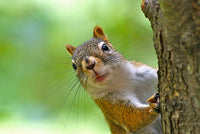
How to Keep Racoons, Skunks, and Squirrels Away - Without Traps or Poison
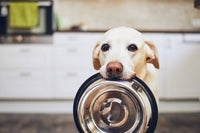
Why Dogs Shouldn't Eat Turkey: What Every Pet Owner Should Know
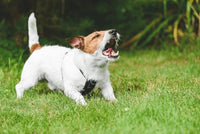
You love your dog—but the constant barking every time someone walks past the fence? Not so much.
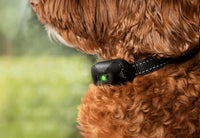
Handheld Bark Control vs. Collars | Best Dog Barking Deterrent Devices
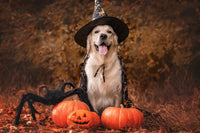
10 Fun Pet Costume Ideas (and How to Keep Pets Comfortable)